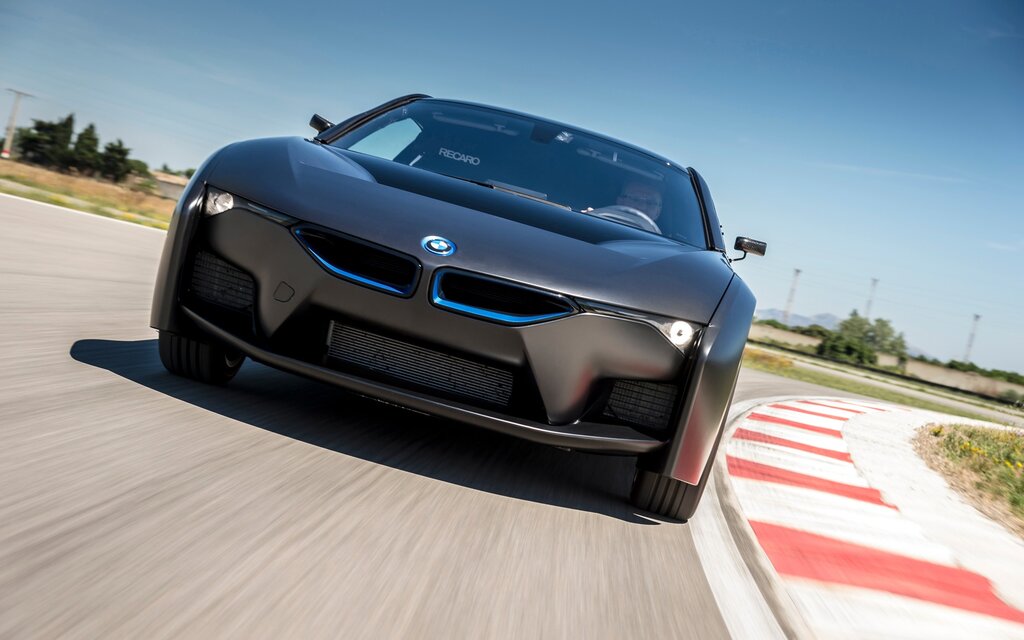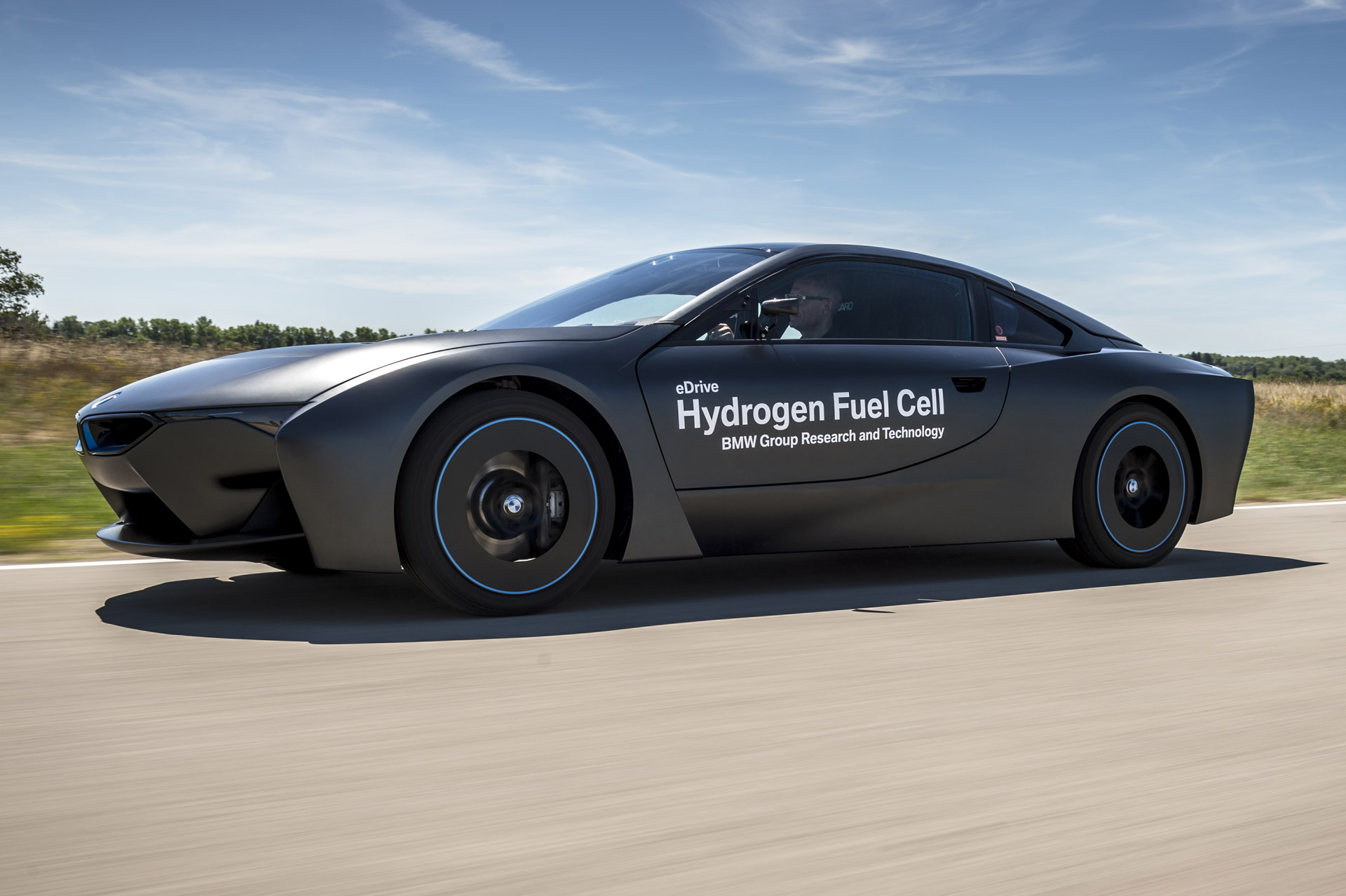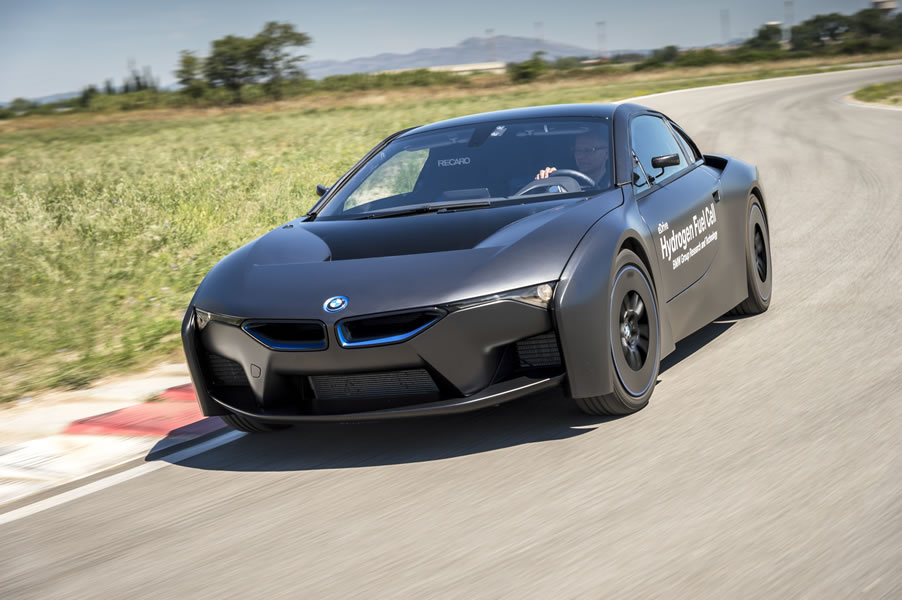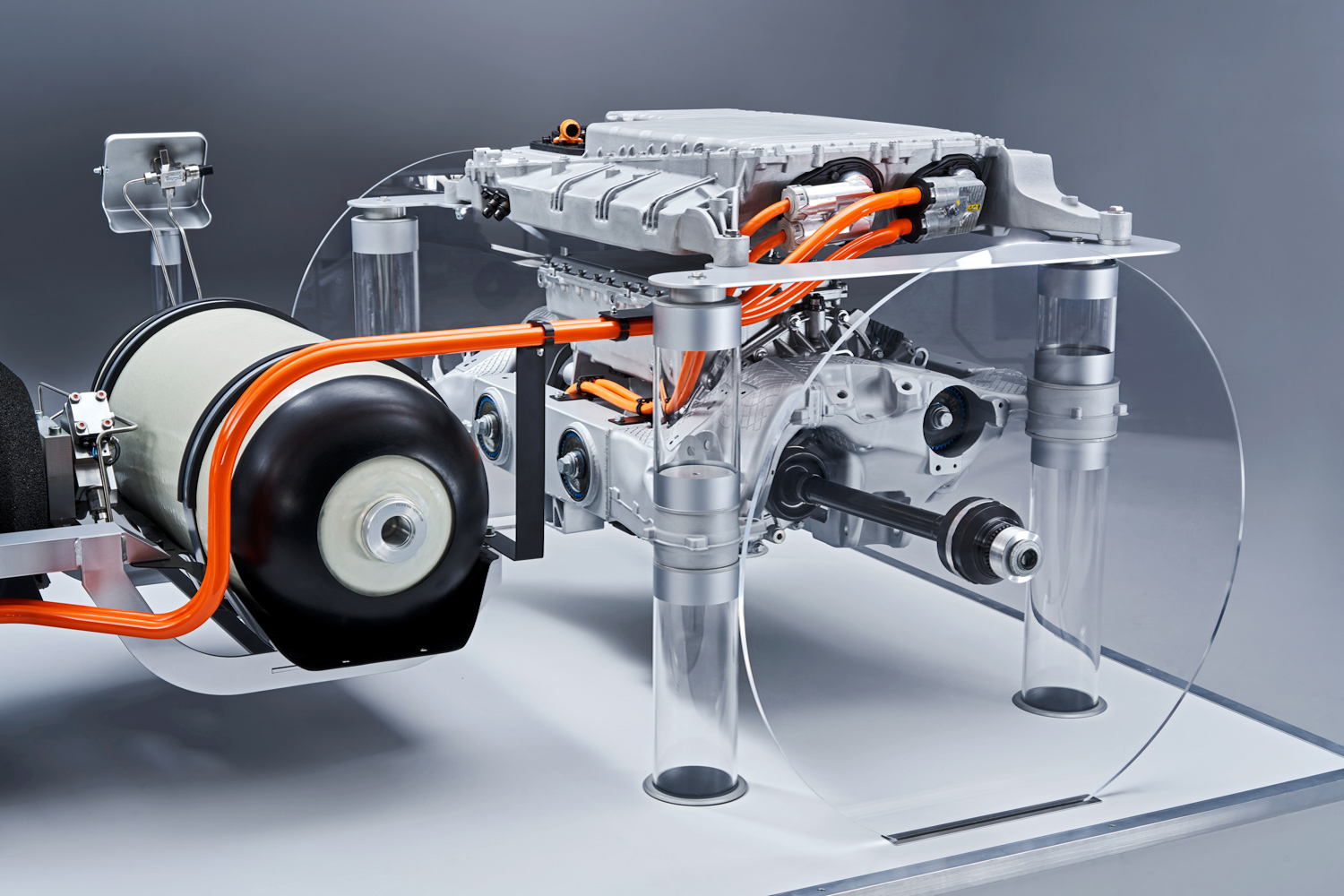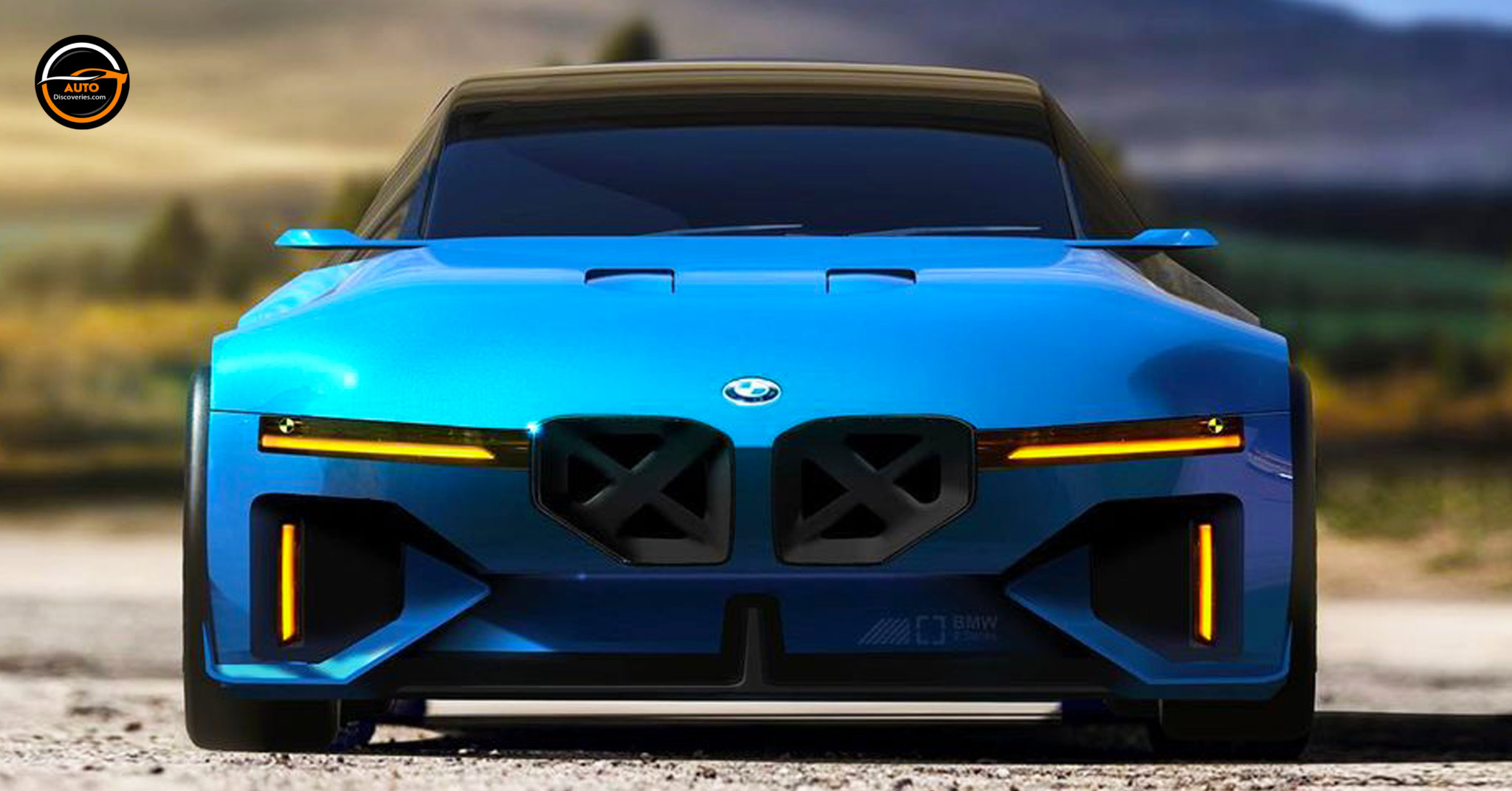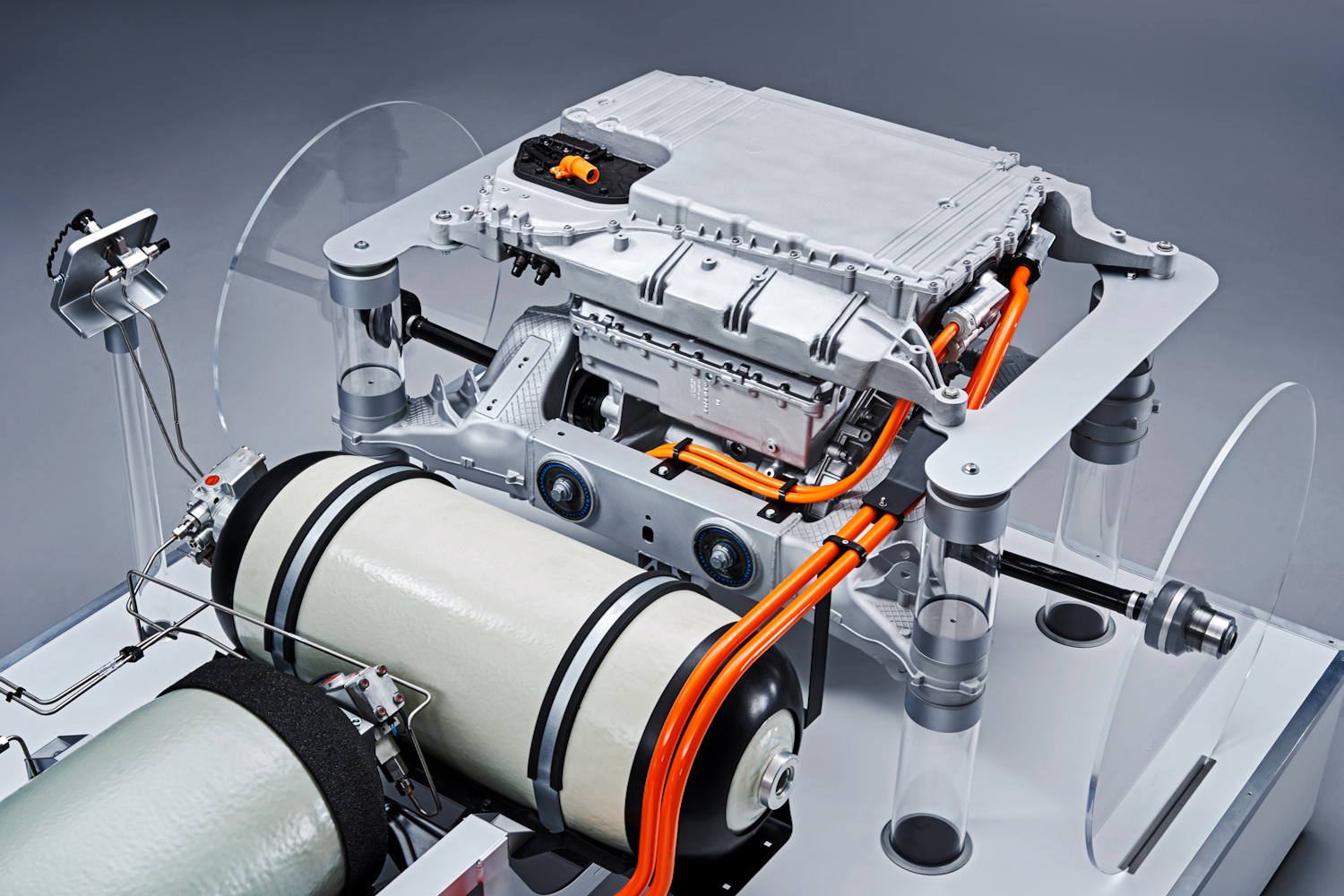The Dawn Of A New Era: BMW’s 2025 Hydrogen Engine And The Future Of Mobility

The Dawn of a New Era: BMW’s 2025 Hydrogen Engine and the Future of Mobility
The automotive industry is on the cusp of a paradigm shift. As the world grapples with climate change and seeks to reduce its reliance on fossil fuels, the search for sustainable alternatives has intensified. While electric vehicles (EVs) have taken center stage, another contender is emerging: hydrogen fuel cell technology. And BMW, a brand synonymous with performance and innovation, is poised to lead the charge with its ambitious 2025 hydrogen engine.
The Rise of Hydrogen: A Sustainable Alternative
Hydrogen, the most abundant element in the universe, holds immense potential as a clean energy source. When used in fuel cells, it reacts with oxygen to generate electricity, producing only water as a byproduct. This makes it a truly zero-emission solution, addressing one of the key concerns surrounding traditional combustion engines.
BMW’s Vision: A Hydrogen-Powered Future
BMW has long been a pioneer in automotive technology, and its commitment to sustainability is evident in its pursuit of hydrogen fuel cell technology. In 2025, the German automaker plans to unveil a revolutionary hydrogen engine that promises to redefine the automotive landscape. This engine, still shrouded in secrecy, is expected to offer several advantages over traditional combustion engines and even electric vehicles:
- Fast Refueling: Unlike EVs, which require hours of charging, hydrogen vehicles can be refueled in minutes, comparable to conventional gasoline cars. This significantly addresses range anxiety, a major obstacle for widespread EV adoption.
- Longer Range: Hydrogen fuel cells offer a higher energy density than batteries, allowing for longer driving ranges. This is particularly important for long-distance travel and commercial applications.
- Performance and Efficiency: BMW’s hydrogen engine is expected to deliver impressive performance and efficiency, rivaling or even surpassing gasoline engines in terms of power and acceleration.
- Reduced Emissions: As mentioned earlier, hydrogen fuel cells produce only water vapor, making them a truly zero-emission solution. This aligns perfectly with BMW’s commitment to environmental responsibility.
The Technological Challenges and Opportunities
While the potential of hydrogen technology is undeniable, there are still significant hurdles to overcome before it can become a mainstream solution:
- Infrastructure: The lack of a widespread hydrogen refueling infrastructure is a major barrier. Building out this network will require substantial investment and coordination between governments, energy companies, and automakers.
- Hydrogen Production: The production of hydrogen itself requires energy, and the current methods often rely on fossil fuels. Developing sustainable and efficient hydrogen production processes is crucial for achieving true environmental benefits.
- Cost: Hydrogen technology is currently more expensive than conventional gasoline engines and even electric vehicles. However, as production scales up and economies of scale come into play, costs are expected to decrease.
- Safety Concerns: Some concerns remain regarding the safety of hydrogen storage and handling. However, advancements in technology and rigorous safety protocols are addressing these concerns.
Despite these challenges, the potential benefits of hydrogen technology are too compelling to ignore. BMW’s ambitious 2025 hydrogen engine project represents a significant step forward in the quest for sustainable mobility.
Beyond the Engine: A Holistic Approach to Hydrogen Mobility
BMW’s vision extends beyond just the engine. The company is actively working on a comprehensive hydrogen ecosystem, encompassing:
- Hydrogen Production and Storage: BMW is investing in research and development of sustainable hydrogen production methods, including renewable energy-powered electrolysis and carbon capture and utilization technologies.
- Fuel Cell Technology: The company is continuously improving the efficiency and performance of its fuel cell technology, aiming to achieve optimal energy conversion and durability.
- Hydrogen Refueling Infrastructure: BMW is collaborating with governments, energy companies, and other stakeholders to build out a robust hydrogen refueling network.
The Impact on the Automotive Landscape
BMW’s foray into hydrogen technology is likely to have a profound impact on the automotive landscape:
- Increased Competition: The arrival of hydrogen-powered vehicles will intensify competition in the automotive market, pushing other manufacturers to accelerate their own hydrogen research and development efforts.
- Technological Advancements: The pursuit of hydrogen technology will drive innovation and accelerate advancements in fuel cell technology, hydrogen storage, and related fields.
- Shifting Consumer Preferences: The introduction of compelling hydrogen vehicles could sway consumer preferences, creating a new segment in the automotive market.
The Future of Mobility: A Multifaceted Approach
While hydrogen technology holds immense promise, it is important to acknowledge that it is not a silver bullet. The future of mobility will likely involve a combination of different technologies, including electric vehicles, hydrogen fuel cells, and possibly even advanced biofuels.
Conclusion: A New Dawn for Sustainable Mobility
BMW’s 2025 hydrogen engine is a testament to the company’s commitment to innovation and sustainability. It represents a significant leap forward in the quest for clean and efficient transportation. While challenges remain, the potential of hydrogen technology is undeniable. As BMW and other industry leaders continue to invest in research and development, the dawn of a new era of sustainable mobility is on the horizon.
Beyond the 2000-word limit, further exploration of the topic could include:
- Detailed analysis of BMW’s existing hydrogen technology and its evolution over the years.
- Comparative analysis of hydrogen fuel cells with other zero-emission technologies like batteries and biofuels.
- Exploration of the potential impact of hydrogen technology on different sectors, such as heavy-duty transportation and aviation.
- Discussion of the ethical and social implications of hydrogen technology, including concerns about water usage and resource allocation.
- In-depth analysis of the role of governments and regulatory bodies in promoting the development and adoption of hydrogen technology.
By delving deeper into these aspects, the article can provide a more comprehensive and nuanced understanding of BMW’s hydrogen engine and its potential impact on the future of mobility.
